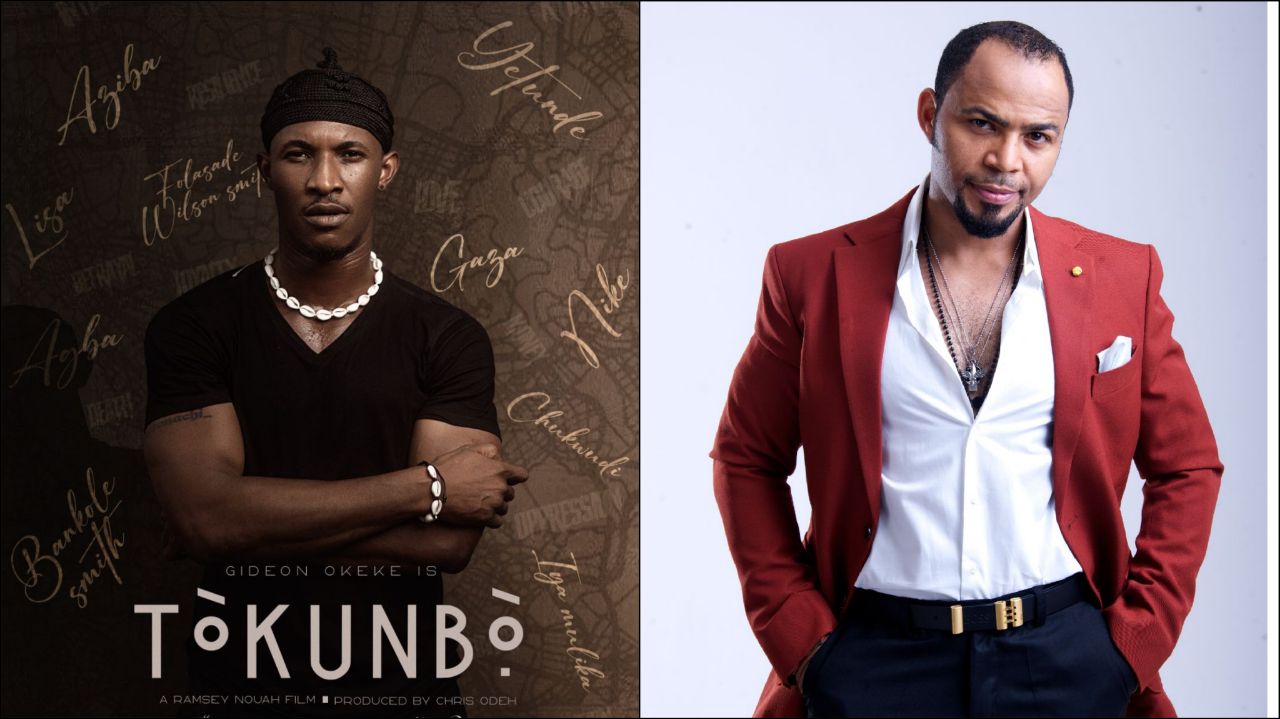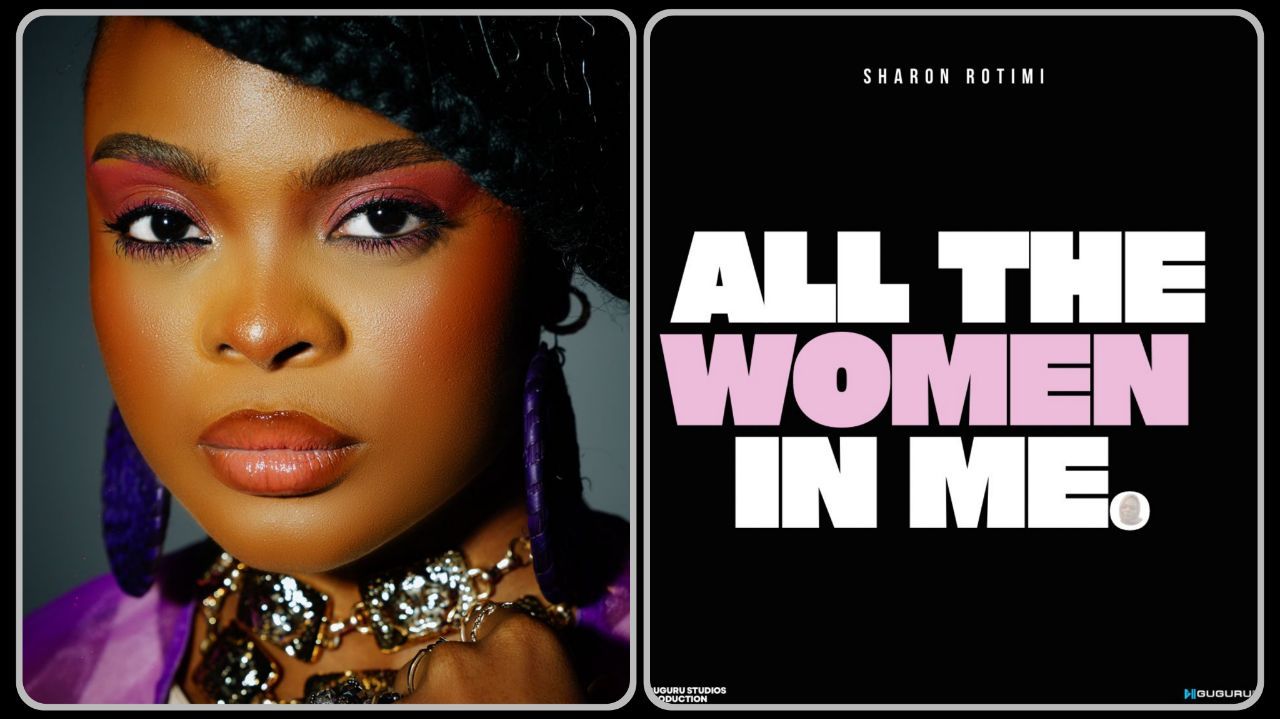In a retrospective I wrote last year, I hailed Isoken as Jade Osiberu’s best film and praised how well it executed its premise: “[this is] a simple romantic story, Russian-dolled in another one about self-confidence, and yet another about societal pressures…it’s brilliant.” I had hoped that in writing this review, I would refer to Isoken only in the sense that the writer-director had surpassed those heights, but while elements in Osiberu’s latest film such as the music and the cinematography hit all the right notes, the story never quite comes together.

Fiyin (Teniola Aladese) is on her way to the airport to pick up her cousin, Ivie (Rayxia Ojo), and her best friend, Elozonam (Shalom C. Obiago). Fiyin plans to confess her love to Elo, while Ivie who has no desire to be enamoured of anyone, is here to enjoy herself. Fiyin gets a rude awakening when Elo announces his intention to propose to Yagazie (Angel Anosike) his girlfriend of eight months. Fiyin is shocked at the news but convinces herself that she can win Elo’s love regardless.
Fiyin’s mother, Gbemi, (Shaffy Bello) also has to deal with a love triangle. There is Zachariah Dozie (RMD), a billionaire who has been married and divorced three times. He is an old flame looking to rekindle their love and pick up where things left off decades ago. And with Toye (Wale Ojo), Gbemi’s current lover, a sweetheart of a man, the triangle is complete. Gbemi has to decide with whom she wants to spend the rest of her life.
There is a subplot involving another love story between Ivie and Ajani, who is a delivery man by day and a guitarist by night. Yet another subplot deals with Ajani’s friend and colleague, Chisom (Obinna Okenwa) and his interest in Ladi (Tris Udeh), the maid who works for Gbemi. Set during the festive season in Lagos, the story follows these characters as they navigate the muddy waters of love and relationships.
Nollywood filmmakers are always trying to capture the essence of Lagos—whether in crime thrillers showing its murky underside, comedies portraying it as a city of chaos and errors, or romance stories where one can be swept up by passion and desire in the city that never sleeps. Osiberu is no stranger to this drift. Gangs of Lagos showed Lagos in all its danger and madness; Isale Eko comes alive amid violence and bloodshed. This time around, she turns her attention to the city’s softer, more delightful features.
Her work in Christmas in Lagos is threefold: to depict Lagos as chaotic for comedic purposes, to show it as a place full of romance and longing, and to capture what the city feels like at Christmastime. The first two attempts, however, do not yield enough fruit. For a romantic comedy, the film is light on both comedy and romance. They appear like a mirage in the desert before collapsing back into the status quo. As for capturing the city at Christmas, it doesn’t quite hit the mark either. While the film stages party after wedding after expensive party, it doesn’t do much in terms of theme or characterization. Taking into account the many cameos, Christmas in Lagos has all the trappings of a “big” film, but it never rises above artifice. Without a strong emotional underpinning, the audience is left with little to chew on.
Conflict is story fuel; it creates the momentum that propels the narrative. If it isn’t well-defined, it can hinder character development and make the story feel uneventful. A good chunk of the conflict in this film is internal. Will Fiyin sabotage her best friend’s relationship or will she look for love somewhere else? Will Gbemi choose Toye or Zach? Will Ajani and Ivie last? Will Ladi completely accept Chisom’s advances? Will Elozonam’s family be able to overcome their grief and learn to live with it, especially during the festive period?
For this to work, we need to be privy to the characters’ emotions and thoughts. Their internal conflict has to be represented visually and not just by them telling other characters how they feel. The film attempts to do this but it keeps missing a certain je ne sais quoi– the story is without any tension or stakes. What happens if Fiyin doesn’t get together with Elo? The audience hardly cares because we have little insight into what Fiyin needs. The film tells us the answer in the resolution: personal development. There’s just one problem: this hasn’t been properly set up or communicated.
Ivie wants to have a good time sans romance, and yet, all it takes is one guitar solo to change her mind. That’s perfect and plausible, but her storyline has no conflict. You’d think it’d come from Ajani being a delivery man with an okada, but this doesn’t even give her a moment’s hesitation. While it’s commendable that the story doesn’t take these well-worn paths, it’s frustrating that even though the pair share about four scenes together, the audience is never in fear of the fact that they might not work. I repeat, where is the conflict?
The multiple storylines present a challenge because for the film to really sing, the writing has to make the audience care about them equally. The theme about grief and how it affects families during the festive period when everyone is supposed to be together feels out of place because it isn’t given the time and attention it deserves.
Are there aspects that work? Sure. The film has glamour in spades. The costume as well as production design departments clearly put their best foot forward. And the cinematography captures the characters and locations in stirring close-ups and dazzling wide shots. In the scene where Ivie and Ajani are “feeling” each other, the camera swirls softly around them and employs a shallow depth of field to blur out the background; it’s almost as if in that moment, as far as they are concerned, they are the only two people in the world. This is a feeling that anyone who’s been in love understands all too well. Unfortunately, such moments of storytelling brilliance in Christmas in Lagos are often dragged down by clunky, unnatural-sounding dialogue.
The veteran actors deliver the best performances by far. Shaffy Bello as Gbemi is a woman with a quiet courage and strength who is still looking out for her daughter even while she wants to pursue her own happiness. Her eyes are filled with experience and she seems to have come across every type of man under the sun. When Zach woos her, she wears a wide smile, but those eyes belie her interest; it is clear she can see through his bullshit. Richard Mofe-Damijo plays Zach as the kind of guy who has not learnt how to take no for an answer where a woman’s affection is concerned. In this game of love, chest-thumping will not cut it– only honesty and vulnerability. Wale Ojo shines as Toye, a character whose dynamic with Gbemi I’d have loved to see more of; he’s kind, respectful, and dares to wear his heart on his sleeve. All three elevate this story and give weight to some of its emotional beats.
Obiago as Elo is a miss; he delivers his lines with little confidence and his chemistry with Yagazie and Fiyin is nonexistent. Ladipoe falls in the same category. I was never convinced by his portrayal of Ajani. Never convinced he was actually falling for Ivie. Aladese tries but the writing does her little favours. Fiyin’s best moments are shared with her mother. Their dynamic is so believable and the scenes are so well-constructed that I found myself wishing we’d gotten more of that instead. Apart from a few extras who almost screech the film to a halt with their line delivery, everyone else is fine enough.
Despite its misses, Christmas in Lagos will still be numbered among the upper echelon of Nollywood films. If it had featured one more musical sequence, I would have tagged it a jukebox musical and called it a day. The score and soundtrack are high points in the film; whether it’s Waje putting her own spin on the famous, O Holy Night, Adekunle Gold doing the same with one of King Sunny Ade’s classics, or Esua giving a beautiful rendition of Fall in Love by D’Banj, these moments represent how beautiful and masterful the entire film could have been if more care had been taken with the characters and plot.
Christmas in Lagos premiered on December 20 on Prime Video.
Share your thoughts in the comments section or on our social media accounts.
Keep track of upcoming films and TV shows on your Google calendar.
Side Musings
- Eku Edewor’s cameo got the biggest laugh out of me. She absolutely needs to be in more projects.
- The problem isn’t the fact that the wedding happens on Christmas day, or that they are able to get small chops that evening, it’s that it all feels like an excuse to get the delivery boys to the venue and have the couple share a romantic moment on Christmas, and the payoff doesn’t seem to be worth the plot contrivance.
- They all attend the same church too. This is a nitpick, but it still feels off.
- Kudos again to the music. The soundtrack has been on repeat.






Wasn’t out of place for them to attend the same church. My biggest ick on this film was the fact that Elo played it safe…I wish Elo was played by Shalom, and Elo by Obinna.
This critique is very in depth and apt, Christmas in Lagos promised to be everything and more but like most upscale Nigerian movies these days, it deals with shallow scripting and lack of relatable emotional undertone. I appreciate the cinematography and glamor though.
Your review has sparked my curiosity about this movie and I want to watch it. Hopefully, it gives the same feels as Love Actually.
That is the movie I think was their inspiration. I might be wrong but that’s what I think
I disagree with almost everything you said! Respectively!
I thought it light, fun, airy cute and romantic 😍